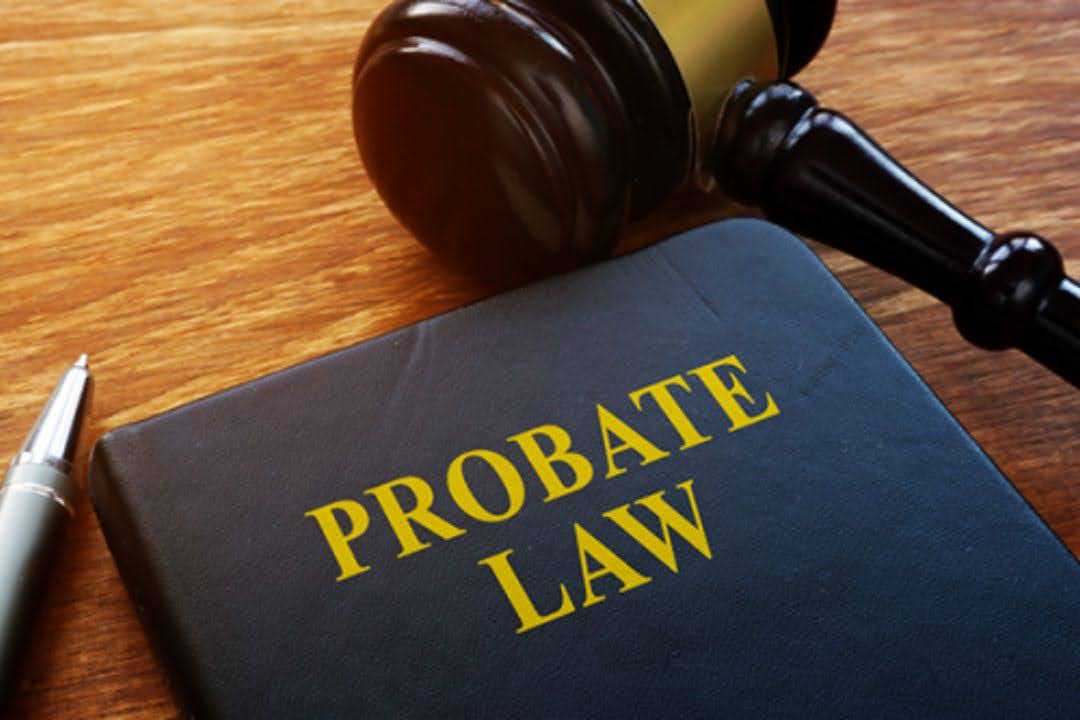
You may find yourself getting overwhelmed while processing probate. The situation can get even more stressful when you have been named as an executor of your loved ones’ estate, along with having to deal with the grief of losing them.
This is where probate lawyers come in. Understanding what a probate attorney does helps you go through the process smoothly and quickly, avoiding potential pitfalls and headaches. And for that, you first need to understand what probate is.
Probate is a legal process that verifies the validity of a Will, if one exists, to administer the estate. In cases where the decedent has not left a Will or any other Estate Plan, the individual is considered to have died intestate, and the estate would still undergo probate in such circumstances. Read on to learn everything about how a local probate law attorney near you can help.
Knowing Your Probate Law Attorney and What Can They Do for You?
The first thing that we will clarify here is “What is a probate attorney?” A probate lawyer or attorney is a legal professional tasked with managing the settlement of an individual’s estate following their demise. These attorneys play a crucial role in aiding beneficiaries and estate executors as they go through the probate process. Let’s further explore the roles and responsibilities of a probate lawyer in both scenarios:
When There’s a Will (Testate)
Will Validation:
The probate lawyer assists in validating the will by submitting the necessary documents to the court, such as the application for a Grant of Probate, the will itself, and the death certificate of the deceased.
Inventory and Appraisal:
Collaborates with the executor to create an inventory of the estate’s assets, have them appraised, and submit the inventory to the probate court.
Creditor Communication and Debt Settlement:
Communicates with the estate’s creditors, notifies them of the death, and ensures the settlement of outstanding debts using the estate’s assets.
Title Transfer and Asset Distribution:
Assists in the transfer of titles for assets like real estate or vehicles and oversees the distribution of assets to beneficiaries as per the terms of the will.
Financial Management:
Helps in opening and managing the estate’s checking account, overseeing transactions, and ensuring all financial matters comply with legal requirements.
Tax Responsibilities:
Prepares the deceased’s final tax return, pays any outstanding tax, and files an estate tax return if required. The probate lawyer will also manage income tax issues related to the estate.
Legal Representation:
Represents the executor and beneficiaries in legal matters, including potential will contests or challenges to the validity of the will.
When There’s No Will (Intestate)
Application for Probate:
Submits the death certificate and an application for probate to the court. The court then appoints an estate administrator, who may be assisted by the probate lawyer.
Similar Responsibilities as Testate Case:
Many responsibilities remain similar to the testate case, such as identifying and gathering assets, settling debts and taxes, and overseeing the distribution of the estate. However, in intestacy, the distribution is determined by state or provincial intestacy laws.
Administrator Assistance:
Assists the appointed estate administrator in fulfilling their duties, which include notifying creditors, settling debts, and distributing assets according to intestacy laws.
Court Representation for Intestacy Matters:
Represents the estate in court regarding matters specific to intestacy, ensuring that the distribution aligns with state or provincial laws.
Heir Notification:
Communicates with heirs and other relevant parties, notifying them of the probate proceedings and ensuring legal requirements are met.
Do You Need to Hire a Probate Attorney?
“Do You Need to Hire a Probate Attorney?” is a common question and point of confusion for many individuals when dealing with the administration of an estate. Here are some questions that you need to ask yourself before deciding if hiring a local probate attorney is necessary:
- Is there a legal requirement for a probate attorney in your jurisdiction?
- Do you have prior experience in handling the probate process?
- Can the estate be distributed without going through probate?
- How complex is your state’s probate process?
- Are there disputes among heirs regarding the estate or its distribution?
- Does the estate have sufficient funds to cover debts and expenses?
- Was there a valid will, or is the will contested?
- Is the estate complex with significant assets or assets in multiple jurisdictions?
- Is the estate facing litigation, such as lawsuits from creditors or contested wills?
- Are probate proceedings taking place in a state or province where the executor is unfamiliar with the laws?
Individuals should carefully assess their knowledge, the complexity of the estate, family dynamics, and legal requirements before deciding. By answering these questions and considering these factors, you will get a clear answer as to whether you need the assistance of a probate lawyer or not.
What to Ask When Hiring a Probate Lawyer?
When hiring a probate lawyer, it’s essential to ask them the right questions to ensure that they are the right fit for your needs. Here are some recommended questions:
What is the focus area of your practice?
Probate law involves the legal process of administering a deceased person’s estate, including validating the will, inventorying assets, and distributing them to beneficiaries. It’s crucial that the attorney is experienced and well-versed in this area to ensure they have in-depth knowledge of the relevant laws and procedures.
Do you regularly practice before the court to which my case will be assigned?
Familiarity with the specific court where your probate case will be heard is advantageous. The attorney’s knowledge of the court’s protocols and expectations can contribute to a more efficient and smooth probate process.
What fees do you charge for your services?
Ask for details on hourly rates, flat fees, or a percentage of the estate value. Discuss potential costs associated with your case, and ensure that the fee agreement is documented in writing to avoid any misunderstandings later on.
What documents do I need?
The probate process requires specific documents for validation and distribution. These may include the death certificate, the original will, copies of living trusts, financial statements of the deceased, pending bills, tax reports, and a list of beneficiaries. Having these documents ready streamlines the probate proceedings.
Have you had similar cases in the past, and what was your experience?
While each probate case is unique, the attorney’s experience in handling similar cases provides valuable insights. Inquire about past cases with comparable circumstances, ambiguous clauses, or jurisdiction challenges. Understanding their approach and problem-solving abilities can instill confidence in their capabilities.
What potential issues may arise in my case, if any?
Anticipating potential challenges is crucial. Delays may occur due to missing paperwork, conflicts between beneficiaries, estate assets in different states, pending tax returns, or disputes over the will. Awareness of these potential issues allows for proactive resolution strategies and can help avoid delays.
What kinds of issues do you anticipate?
Probate proceedings can encounter various challenges, such as disputes among beneficiaries, contested wills, creditor claims, or complex tax issues. By asking this question, you prompt the attorney to discuss potential hurdles based on the specific details you provide about the deceased’s estate. While it’s impossible to predict every issue, experienced attorneys can offer insights into common challenges and their strategies for addressing them.
Can I reach you if I need you, even outside office hours?
Accessibility is a key consideration when choosing a probate attorney. Probate cases may involve time-sensitive matters or unexpected developments. Inquiring about the attorney’s availability outside regular office hours and ensuring that you can reach them when necessary. Understanding their communication preferences, whether through emails, calls, or other means, provides clarity on how quickly you can expect a response.
What kind of time frame do you anticipate?
Probate timelines can vary significantly based on factors like the estate’s complexity and local court procedures. Asking the attorney for their estimate on the time frame provides you with an understanding of how long the probate process might take for your case. To get an accurate estimate, it’s important to provide the attorney with all relevant details, including the size of the estate, types of assets, and any potential complications. A skilled probate attorney can offer realistic expectations and keep you updated on progress throughout the proceedings.
Conclusion
Understanding the roles of a probate attorney and knowing when to hire one is crucial when navigating the complex process of estate administration. Whether dealing with a valid will or facing intestacy, a probate lawyer plays a pivotal role in ensuring a smooth and lawful distribution of assets, settling debts, and addressing legal complexities.
Navigating probate may seem daunting, but with the right probate attorney by your side, you can confidently address legal requirements, honor your loved one’s wishes, and ensure a fair distribution of assets.
If you are searching for a “probate lawyer near you” for reliable probate legal services, consider reaching out to Mazurek, Belden & Burke, P.C. Contact us today to discuss your probate needs and take the first step toward a well-managed estate settlement.
